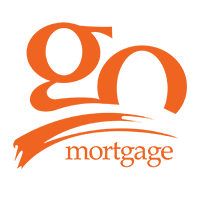 Investing in property is something many people have on their to-do lists, but actually taking the leap can be difficult.
Investing in property is something many people have on their to-do lists, but actually taking the leap can be difficult.
Before you jump in, there is research you should do and questions you should ask yourself. If you are yet to start investing (or even if you are buying your 10th property,) talking over the following questions with an experienced broker could help set you up for the future and avoid costly mistakes.
1. Why am I investing in property?
Your aim might be to build cash-flow to retire on – If so then your investment strategy may need to be different to someone looking to build equity through capital growth. Having a clear goal in mind before you start will make reaching that goal much easier.
A typical goal for one of our clients may be to achieve a rental income of $100,000 per year. This gives them a clear goal to start working towards.
2. Where is my deposit coming from?
Few of us have a spare home deposit in our savings account – but many of us have access to equity in our own homes (or sometimes investment properties). It can be possible to extract this equity to use as a deposit.
Discussing and creating a strategy with your advisers including your mortgage broker will ensure you take the right steps now to get to your goal in the future. For example, depending on your goals and risk profile, you may use larger deposits and avoid Lenders Mortgage Insurance (LMI). However, if your aim is to secure numerous properties, you may want to use smaller deposits, have the LMI added to your loan amounts and spread your deposit funds further.
3. How much can I borrow?
Every lender will assess your income differently, so there is never a single answer to this question. Your individual circumstances (e.g. buying individually or through a Trust or Company, your duration and type of employment, number of properties owned, amount of rental income and your deposit etc.) will fulfill some lenders’ criteria better than others.
Some banks are much more likely to fund your first purchase than your sixth, and you may also find it difficult to get an approval with the same lender after a few applications. A professional mortgage broker experienced in investing will be able to help you design your lending strategy to help you achieve your goals.
4. What property do I buy?
This also depends on your investment strategy and disposable income. It is important to understand how much money you have to commit per month to achieve your goals for capital growth and cash-flow. For example, you may find a property on a larger block, that has future subdivision potential, but that is currently lower yielding. You could match this with a property that is cash-flow positive in order to keep your portfolio balanced. Buying the wrong property for your circumstances can be a costly mistake, so it’s easier to avoid than to fix.
There are also certain postcodes and property types and sizes that will affect what LVR (Loan to Value Ratio) you can borrow. Even if you have a bank pre-approval for a certain amount, your purchase property may not be acceptable to that lender. It’s important to know what the limitations of your chosen lender are, before looking for your property.
5. What type of loan should I get?
There is always a media commentary on fixed vs variable loans. There are advantages and disadvantages to both. Many of my clients are looking to pay down their owner-occupied loans as quickly as possible. With variable loans you have the option of making extra repayments and redrawing available funds if needed. If you are limited on surplus cash you may prefer the certainty of a fixed rate so you know what your expenses will be and can plan accordingly over that term.
There are also loan options – like offset accounts – that can reduce your interest costs without affecting the long-term tax deductibility of your investment loan. Your broker can help you find the right product & loan structure for your needs.
If suitable for you can also look at interest only feature for your investment loans. This can free up any additional funds to reduce owner-occupied and other non-tax deductible debt. Keeping the cash-flow positive is one of the most important steps to building a large, sustainable portfolio.
6. What is my next step?
Depending on how many properties you plan to accumulate, you may be able to get an investment property revalued after some growth or renovations in order to extract equity for the next purchase.
It’s also important to regularly review your loans and your goals. A product that was the best option for you two years ago may no longer be suitable. As your portfolio appreciates, there may be options that become available that are an improvement on your original loans.
Despite what phase of building your property investment portfolio you are at, a knowledgeable, experienced, accredited broker can help you shape your next steps and achieve your property goals. It’s always a good time to look at your existing loans and inspect your options to get you to where you want to be.
